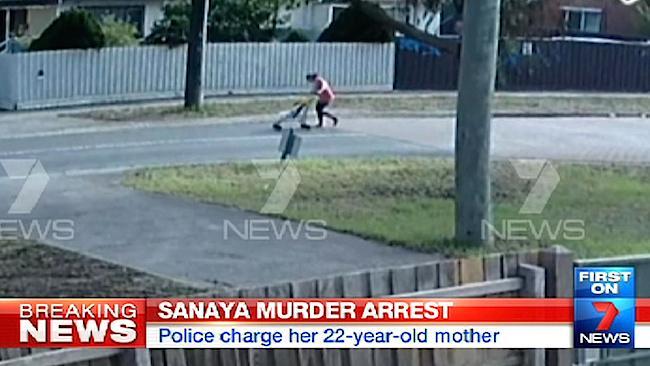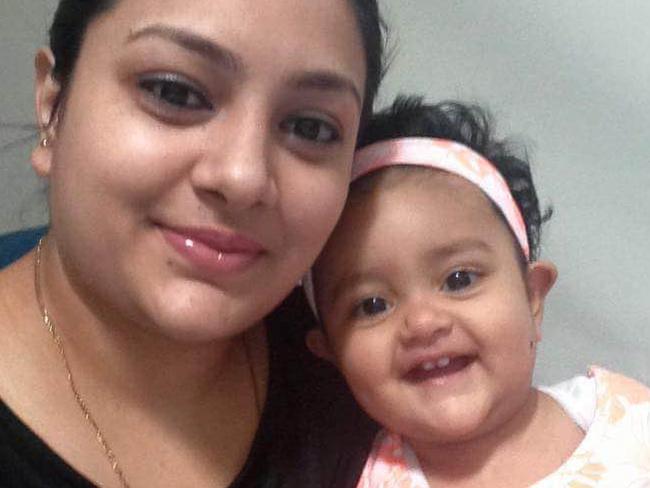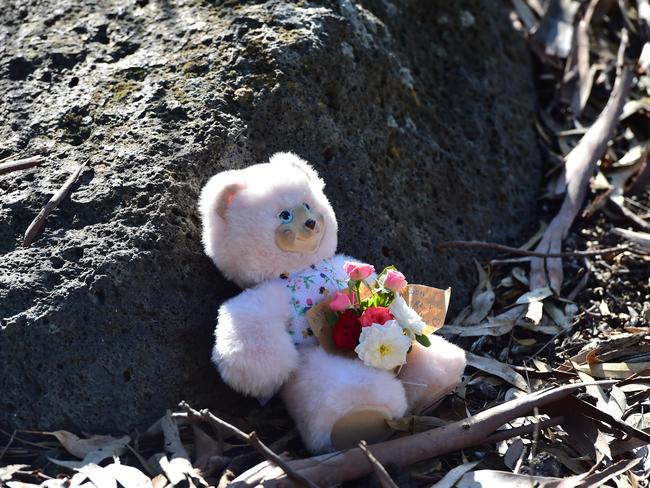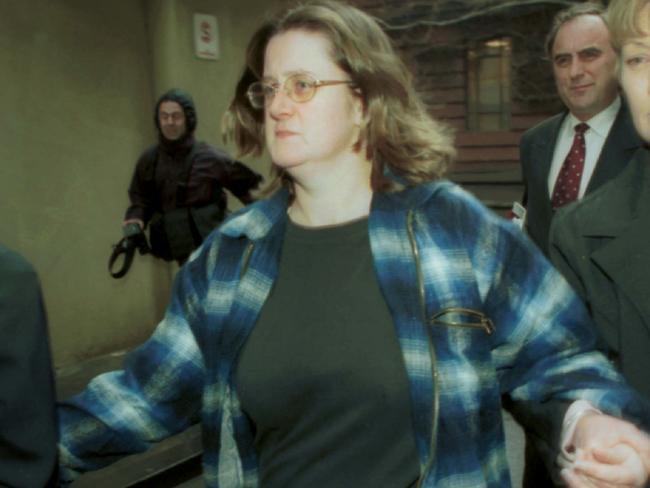Infanticide law in Victoria: How is this not murder?
A WOMAN has admitted she killed her daughter but her lawyers say she’s guilty of a crime no Victorian has ever been jailed for.

IN THE days leading up to April 10 last year things had got out of hand for Sofina Nikat, a court has heard.
According to a summary of her police interview from that day, which was last week read out in court, the 23-year-old mother was struggling to cope with her 14-month-old baby girl Sanaya Sahib.
She told police the baby would “look at the roof and cry and growl”, and that she had been advised by a priest that she and her baby were possessed and had negative energy.
After initially claiming her daughter had been snatched from her pram by an African man who reeked of alcohol, Nikat later admitted to police she had put her hand across Sanaya’s mouth and nose, and hugged her tight until she couldn’t feel her daughter moving.
Nikat had killed her baby, she told police, then dropped her daughter’s body in Darebin Creek.
Yet when she answered a charge of murder in Melbourne Magistrates’ Court on Wednesday, she pleaded not guilty. Psychiatrists agreed.
Her defence lawyer Christopher Dane QC presented the court with two psychiatric assessments by different psychiatrists who independently concluded what Nikat did was not murder, but another charge.
“The balance of mind of Sofina Nikat was disturbed,” consultant psychiatrist Yvonne Skinner wrote in her report. “She is guilty of infanticide, and not murder.”

Mr Dane told the court if Nikat had been charged with infanticide, she would have likely pleaded guilty.
In Victoria, the charge of infanticide carries a maximum sentence of five years imprisonment, however it is believed no Victorian woman has been jailed for infanticide. A murder accused is up for 25 years behind bars.
The charge can only be applied to a woman — a mother — who “carried out conduct that causes the death of her child (under two) in circumstances that would constitute murder”, and, whose balance of mind is disturbed because she’s either not recovered from the effect of giving birth, or as a result of “a disorder consequent on her giving birth to that child”.
It’s a rare crime and one that carries different meanings and consequences in different jurisdictions. In New South Wales a mother can only be found guilty of infanticide if she has killed her child under 12 months, under similar circumstances as in the Victorian law, only the punishment will be the same as if it was manslaughter. The partial defence of infanticide is also available in Tasmania, but doesn’t feature in the remaining Australian states’ criminal codes.
When infanticide does come up in a high profile case, confusion and outrage often comes with it.
How is this not murder? Why is the sentence so light? Why should it be any different?
Without referring to any particular case, criminologist Professor Michael Benes says the difference in consequence between a murder and an infanticide charge comes down to legal liability, and the level of guilt involved.
“This crime is classed as a homicide as any unlawful killing it, but because there are qualifications around infanticide, often it’s seen as excusable homicide,” he tells news.com.au.
“The difference in the sentence, and the seriousness of the charge, is talking about how much guilt does that person who committed it has.”

Prof Benes explains the disparity between the sentences as similar to the difference between murder and the lesser charge of manslaughter.
“Manslaughter is again unlawful killing, but the appropriation of guilt is not as strong as murder,” he says. “However it is much stronger than in infanticide, when you look at the charge, the definition, so the maximum sentence corresponds with that.”
In order to successfully prosecute an infanticide charge, psychological or psychiatric reports would need to provide satisfactory evidence.
In states where the charge exists, a woman found not guilty of murder in trial can be found guilty of infanticide.
But even more difficult than gaining a legal understanding of this shocking charge, is getting a grip on the psychology behind the crime. What would prompt a mother to kill her own child, and how can that action or the condition that caused it be “consequent on her giving birth to that child”?
Queensland University of Technology forensic psychologist and lecturer Claire Ferguson explains infanticide killings are most likely come about as a result of post natal psychosis, even though it is very rare.
“You sometimes see links with post-partum psychosis and post-natal depression. A lot of women suffer from postnatal depression, but very few suffer from post-natal psychosis, and even fewer end up harming their children,” she said.
“Often when you have infanticide with post partum psychosis there’s usually a link to the psychosis with viewing the baby as something that isn’t — seeing the baby as evil or viewing the baby as something that it isn’t.”
Dr Ferguson said in cases of infanticide mothers commonly viewed their child as a “devil” or “demon”, and believed they were somehow possessed.
Dr Ferguson also explained that as well experiencing psychosis, mothers could be motivated by depression and a struggle to cope with the newborn, or could kill their children in a less deliberate move.
“Another motive, if you could call it that, is death from neglect because the mother isn’t capable of being able to care for the infant,” she said.

In 2014, a 39-year-old woman was found guilty of infanticide over the death of her eight-week-old daughter and causing significant injury to the baby’s twin sister, who was left disabled.
Her defence lawyer said post-natal depression may have caused the woman to “flip”, and that she did not remember when or how often she hurt them, the Herald Sun reported at the time. She avoided jail.
In 2004, Leanne Azzopardi received an 18-month community-based order after drowning her five-week-old baby while suffering post-natal depression, and was found guilty of infanticide.
A teenage mother who killed her infant daughter minutes after birth and dumped the 4kg body beneath a tree in 2014 was also not jailed after a Supreme Court judge considered her psychological reports.
Dr Ferguson says outrage over perceived leniency for women who are found guilty of infanticide is often misplaced. She said while a mother who didn’t simply neglect her child but was psychotic “might get a little sympathy”, they were rarely excused by the community for their crimes.
“There is a social construct around how we view mothers. Mothers are supposed to do anything they can to protect their children, so when people behave so far outside of that it’s very shocking,” she said. “I think that mothers who kill their kids get the least amount of sympathy out of just about anybody. They’re not winning the sympathy awards.”
Readers seeking support and information about suicide prevention can contact Lifeline on 13 11 14. Multicultural Mental Health Australia www.mmha.org.au

